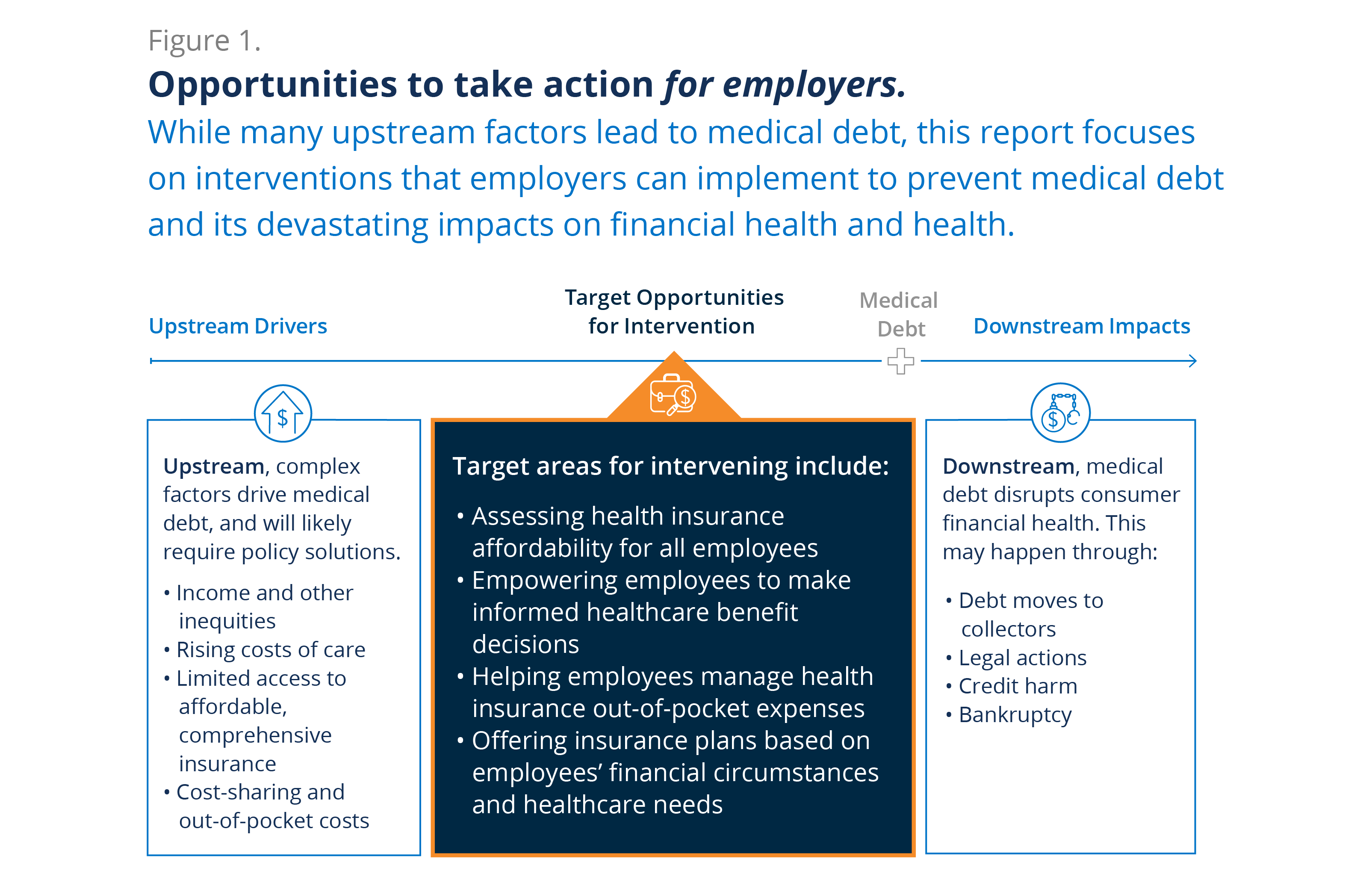Preventing Medical Debt: Recommendations for Employers
This report shines a light on employer decisions around health insurance and how those decisions have helped shape the medical debt crisis, explaining specific actions employers should take now to reduce employee financial stress while improving productivity and retention.
By Michelle Proser, Uzma Amin
-
Category:

Data Spotlight

56% of U.S. employees with employer-sponsored health insurance
report that liking their health coverage is a key factor in whether to stay at their current job.

26% of adults with employer-sponsored plans
are now considered underinsured.

Almost half of underinsured consumers with medical debt
report issues paying medical bills or medical debt.
Key Recommendations
With input from members of our Stakeholder Advisory Council, the Financial Health Network developed recommended actions and strategies for employers to help prevent medical debt among their workforce. Although each recommendation is effective as a stand-alone, employers can achieve the greatest impact by implementing them all.
-
- Assess health insurance affordability for all employees.
- Educate employees about the basics of insurance, and explain out-of-pocket expectations upfront.
- Provide services or benefits that help employees manage health insurance out-of-pocket expenses.
- Offer insurance plans based on employees’ financial circumstances and healthcare needs.

Explore the Full Series

Systems-Level Overview
Explore insights into the prevalence of medical debt and its effect on consumers, how medical debt functions as a social determinant of health and driver of health inequities, and opportunities for key players to prevent it.

Recommendations for Hospitals and Health Systems
Read about actionable strategies healthcare providers should take now to improve financial assistance and repayment programs, support informed patient decision-making, and proactively identify patients at risk for medical debt to target financial assistance.

Recommendations for Insurers
Discover opportunities insurance providers should seize now to help members navigate plan selection, understand key terminology, reduce out-of-pocket expenses, utilize preventive care, and improve administrative processes that affect customers.
Our Supporter
Support for this report series was provided by the Robert Wood Johnson Foundation. The views expressed here do not necessarily reflect the views of the Foundation.
More to Explore
Exploring the Link Between Housing and Healthcare Costs and Weather Events
Households that experienced a weather event were also more likely to face a range of unexpected housing- and health-related expenses.
Financial Strain and Health
In the United States, financial stress significantly impacts overall well-being. A staggering 40% of Americans report experiencing high stress related to money, while 76% of American households live paycheck to paycheck.
Exploring the Interconnectedness of Financial and Mental Health
Our recent Member-exclusive Executive Roundtable shared several ways organizations can support people’s financial and mental well-being.
Sign Up to Receive Our Newsletter
If you’re a healthcare professional dedicated to improving physical and financial health, sign up to receive our newsletter today.
Written by
Preventing Medical Debt: Recommendations for Employers
Explore the trends. Discover new insights. Build stronger strategies.




